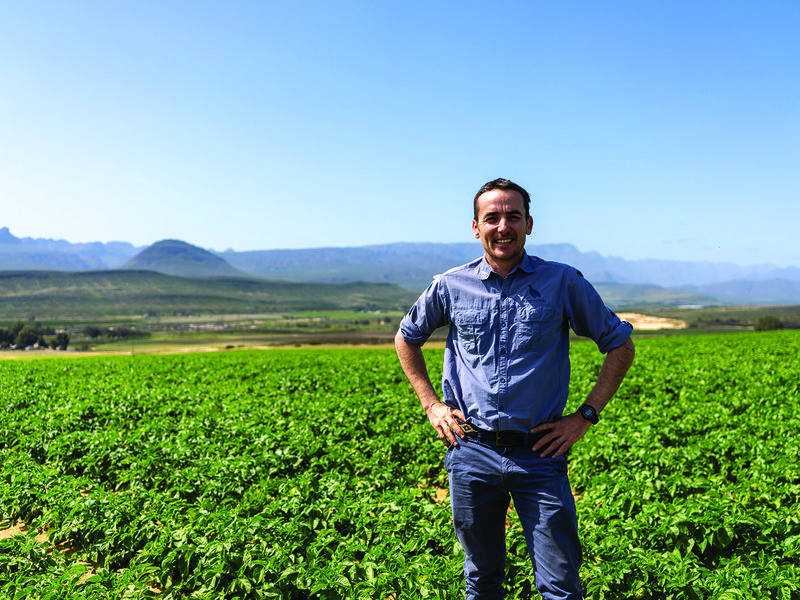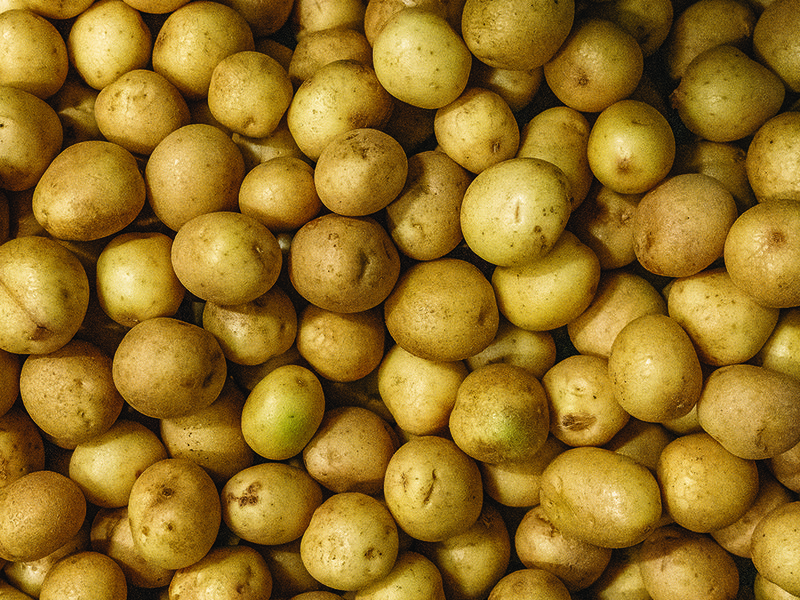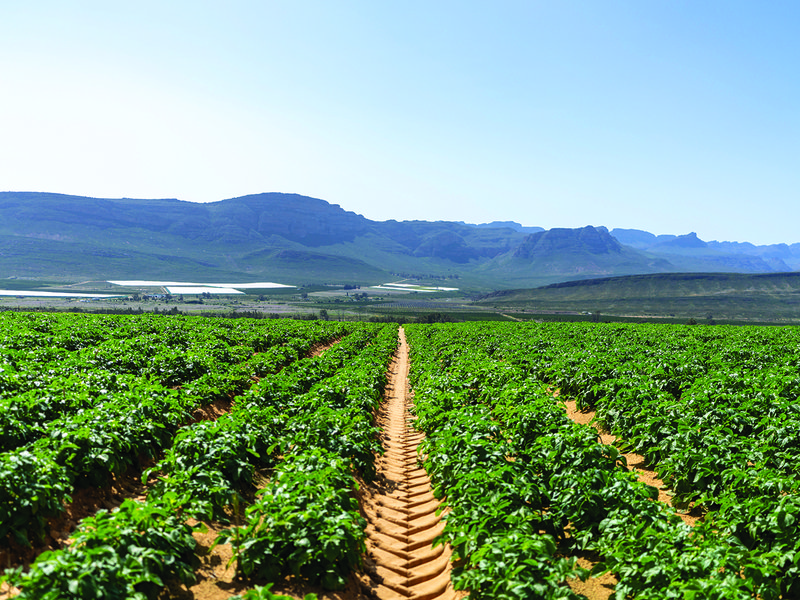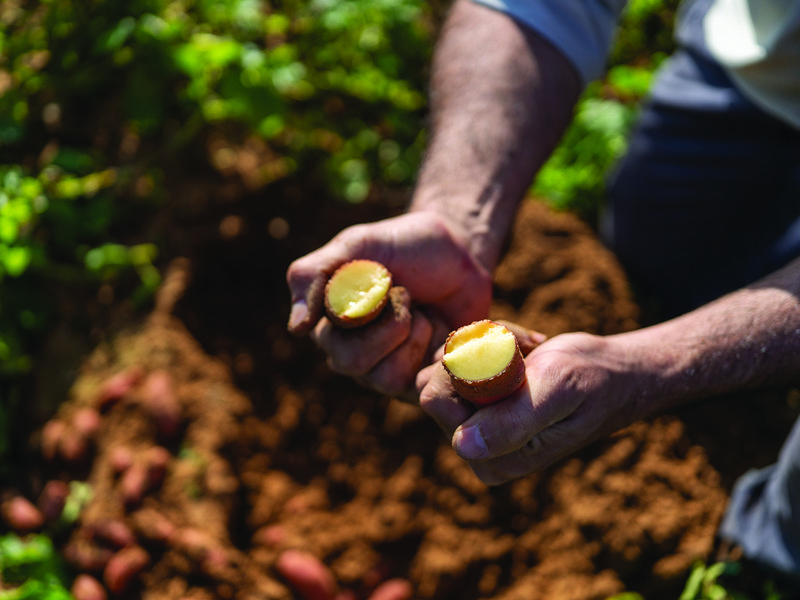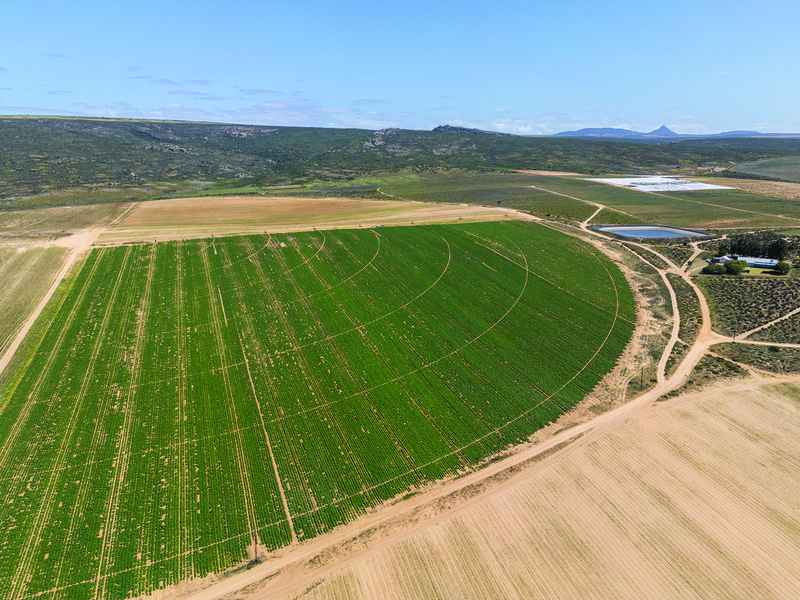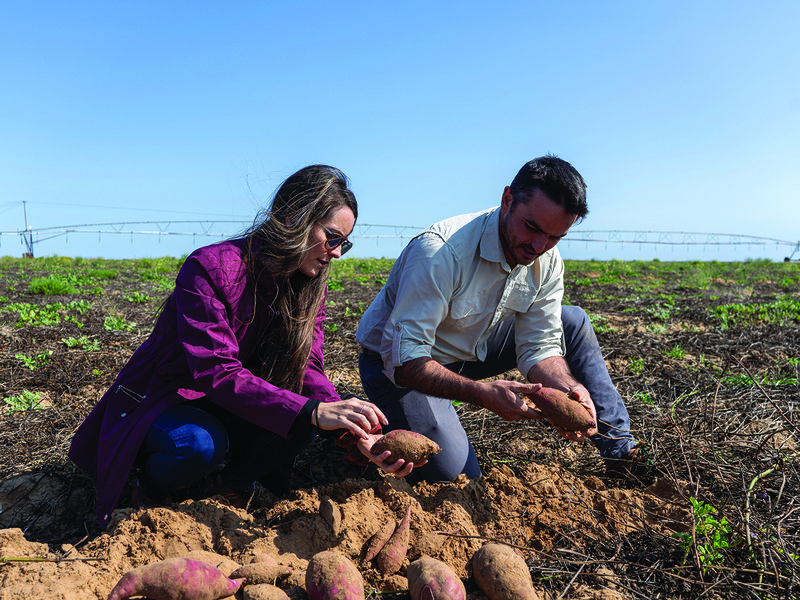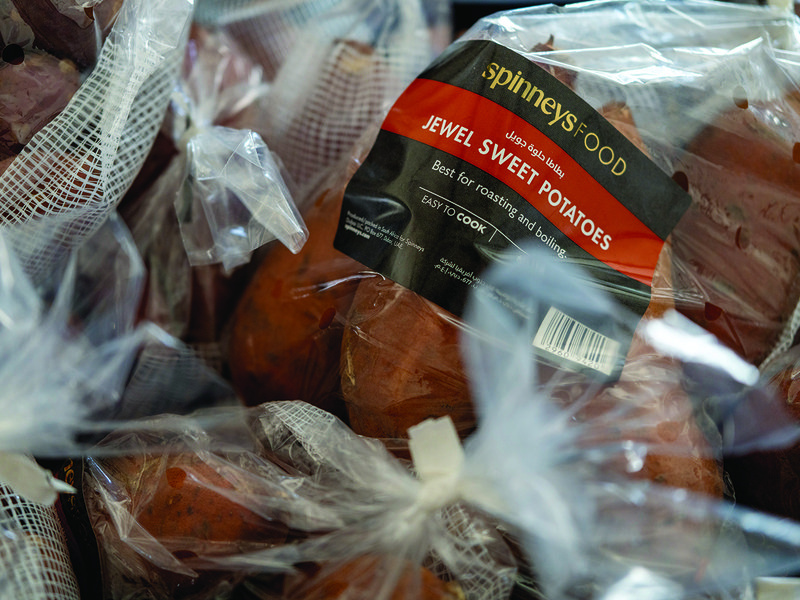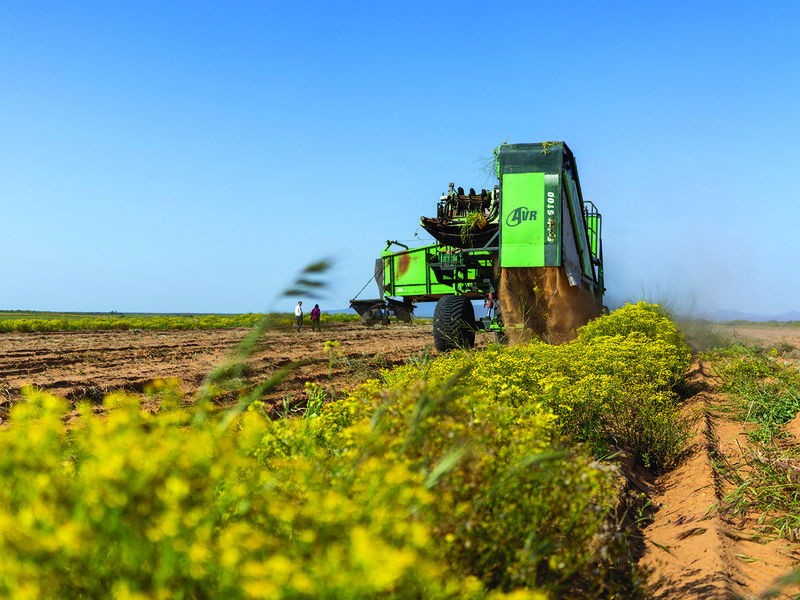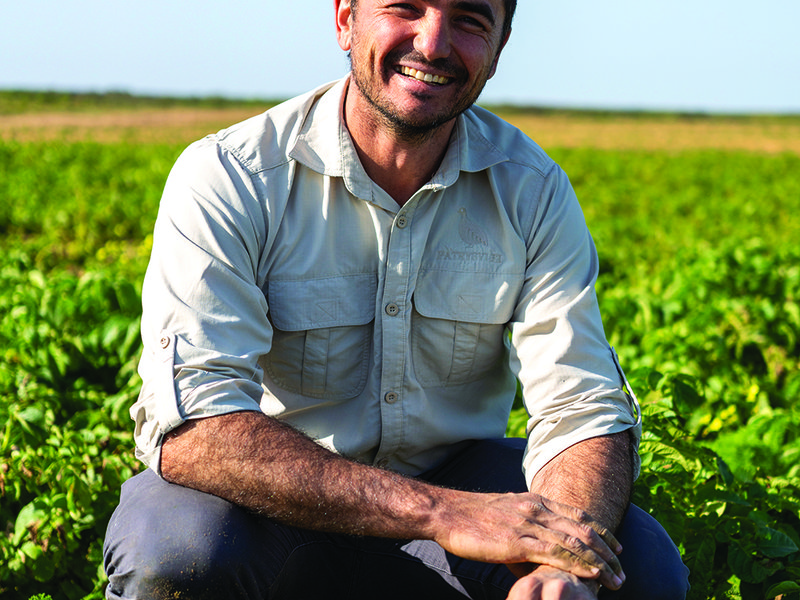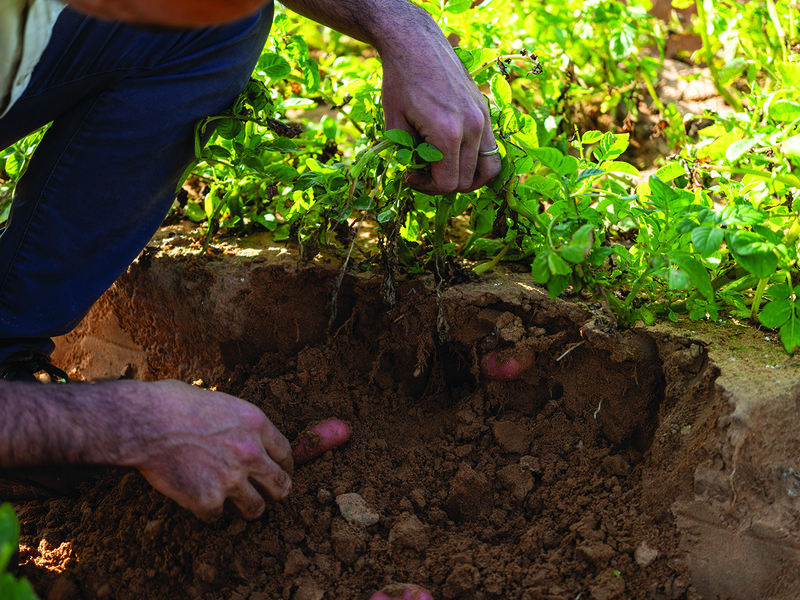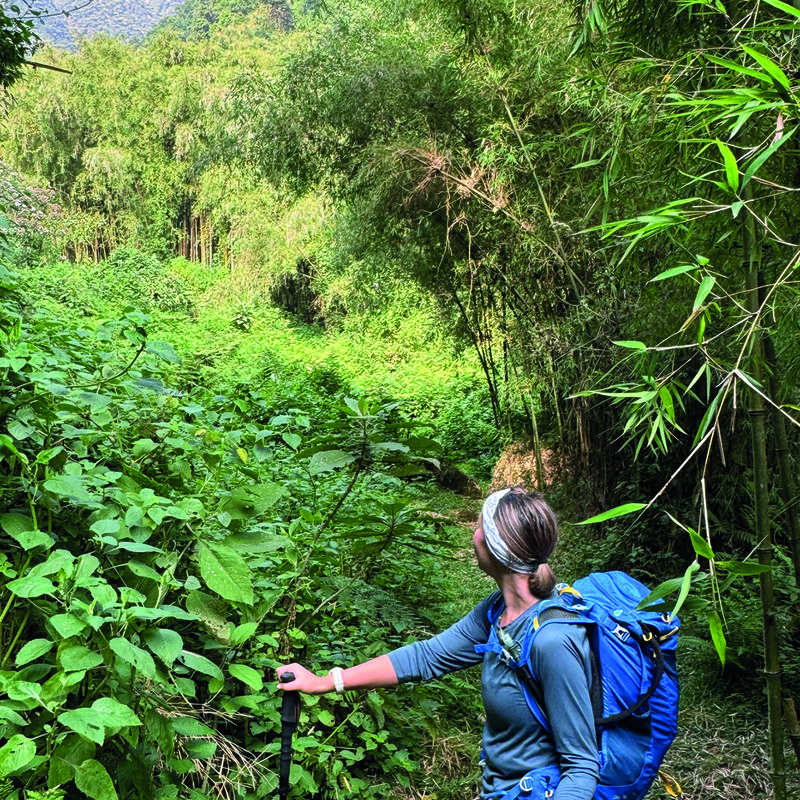The Western Cape region of South Africa is among the world’s great “floral kingdoms” – carpeted with heath and shrubland, coloured by some 9,000 different plant species. More than 60 per cent of these are endemic and many are endangered. The otherworldly Clanwilliam cedar, for example, its twisted branches growing leaves that look like scales amid the unusual rock formations of the Cederberg Mountains.
Just below that range and beyond the town of Clanwilliam itself, agricultural land stands out for its neatness against this wilderness, green rows of potato plants cutting straight lines through an expanse of pink, white and yellow wildflowers across the Olifants River Valley. The potato is not native of course, explains Ross Bergh. Standing in one of those fields at Patrysvlei farm, he talks us through that vegetable’s first cultivation in Peru, and its subsequent genetic evolution to yield different varieties with black, white, or purple skins.
There’s a genetic element to Ross’s own presence here, too. His work as a potato farmer is what he calls a “generational vocation”, inherited from his father and grandfather, and theirs before them, reaching back to his family’s original settlement of this territory in the 1800s.
“In all that time, we have sought to pass on the land in a better condition. Not just for the family but the community and ecosystem around us,” he says. “Sustainability is at the core of what we do, and that has evolved through the generations, too. There are different ways to achieve it now than in my grandfather’s time.”
Ross and his younger brother Thomas represent the eighth generation of Berghs to run farming operations at Patrysvlei, though their father John is still very much involved, and his working life has corresponded to a period of accelerated changes in agriculture.
“A major technological boom,” as Ross puts it, “which saw these synthesised fertilisers and chemicals being introduced, along with high-tech, low-flow drip irrigation and all kinds of monitoring systems. But at the same time there was a whole new science developing around regenerative, biological types of farming, which is going back to how previous generations would do it. Today, our principles here are to manage water and nutrients optimally, to grow cover crops into our rotations, to minimise pesticide use and instead use biological agents and natural predators to address pest pressure, and to basically manage the environment. Our father was at the forefront of that movement, and we seek to continue those practices.”
When it comes to irrigation, the key to the whole process, the Berghs use a mix of traditional farming methods and high-tech applications. Water is deployed on a “climate-driven” schedule, and according to plant requirements, with probes installed throughout the fields and linked to an online platform that monitors the crop around the clock.
“We try to irrigate just what’s needed, no more no less, and only where there are roots. Otherwise you’re wasting water and leaching out nutrients.” The farm also operates off-grid, making use of solar panels and water-powered turbines that help the business keep production costs low and maintain a clean energy footprint while also ensuring security of supply. All of which, of course, is to serve the quality of the product itself.
Some 12 different vegetable crops are grown at Patrysvlei, and five different fruits, across this farm beneath the inland mountains and another coastal property with maritime weather conditions. Ross’s brother Thomas, who runs the packing operation, explains that the various microclimates at play “allow us to stretch our growing seasons and facilitate 12-month production”.
Which is to say that the Berghs can grow potatoes year-round in this region, as compared to more “seasonal” growth cycles elsewhere in South Africa. “We’ve got abundant fresh water and sunlight, and our soils are also generally more sandy than other parts,” says Thomas.
“This gives us a good skin on the finished product, but also means our yields are also slightly lower.” Of the 500 hectares given over to vegetables, some 220 are used for planting potatoes. “Seed potatoes are manipulated through cold storage. The cold induces a rest period and when removed to ambient conditions the tubers are ready to plant. Each tuber pushes out sprouts called haulms and each of those will produce three or four tubers.”
And with each variety selected for its eventual eating quality, the end results are potatoes so good that Spinneys has come to rely on Patrysvlei as a trusted supplier of three particular varieties (as well as sweet potatoes, butternut squash and pumpkins). The Nicola is waxy, mild and yellow-fleshed. The Abby is a red fingerling, hand-picked for its distinctive appearance and flavour profile. The Avalanche, meanwhile, is optimal for chipping and baking, with an earthy texture that absorbs cooking oil especially well.
Favourites are a matter of personal taste and usage – Ross loves the Nicola, for example. “It’s great boiled with a slight dressing, or roasted face-down in olive oil with a sprinkle of rosemary salt.” Spinneys produce buyer Angelique du Toit prefers the Abby, which she says “also does well for roasting and frying, with a little sweet note to the taste”.
The sweet potatoes sourced from Patrysvlei are no less a source of pride – the Jewel, for example, with its orange flesh and distinctively creamy texture when cooked.
Looking over the domain, Thomas recalls his own childhood on the farm, and the question of whether he might have done something else with his life. “You might say it’s in my blood. I didn’t always plan to be a farmer, and I wasn’t necessarily encouraged to do it, but on reflection it seemed the obvious choice, to go into the family business.”
Today there are many other kids around the farm, the children of workers who may themselves have been with the Berghs for generations. For the brothers and their father, sustainability has also come to mean investment in those people, too. “We do seek to ensure the well-being of all our staff with a focus on the kids and their development,” says Ross.
“We offer childcare on our farms but also formal training, whereby we see a constant upskilling of the workforce. And we have sports teams and organised activities for non-work pastimes, too.” The work itself, says his brother, hardly makes for the easiest job in the world. “Farming is a very operational business. It takes a lot of actions and manipulations to get each crop to optimal quality and yield. And then the same applies for harvesting, packing, handling, marketing. It’s a logistical exercise in that regard.”
As to whether the brothers and their father always see things the same way… “We’re all very stubborn,” says Thomas. “But I think we can recognise when one of us is right, and we always come around to agreement at the end of the day.” Their common goal, and their abiding legacy, says Ross, is a shared sense of stewardship: “I guess we see ourselves as the custodians of this land, as opposed to the owners.”
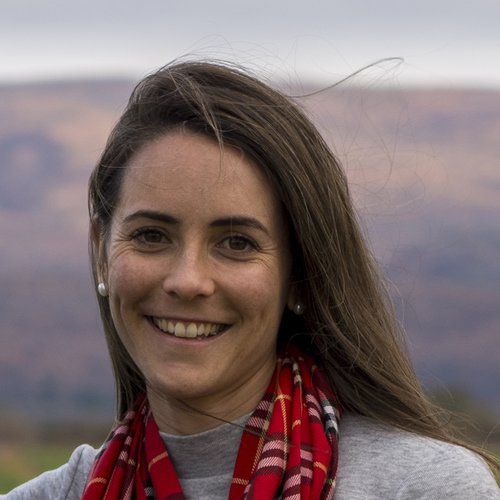
Produce buyer of vegetables
Angelique says
We started working with Patrysvlei more than a year ago to launch Spinneys’ private label, potatoes: Nicola and Abby, the latter of which is a red fingerling potato.
I’ve known John, Ross and Tom for 12 years and their passion and love for farming and their land is infectious and it is evident from the way they tend to their farms.
Our partnership with Patrysvlei gives Spinneys a strategic and unique opportunity to replace long-term, stored potatoes with freshly harvested potatoes. The Berghs achieve this by planting in different farms close to the coast in the Sandveld Western Cape region, where the ocean’s moderating effect keeps temperatures favourable for growing tubers.

